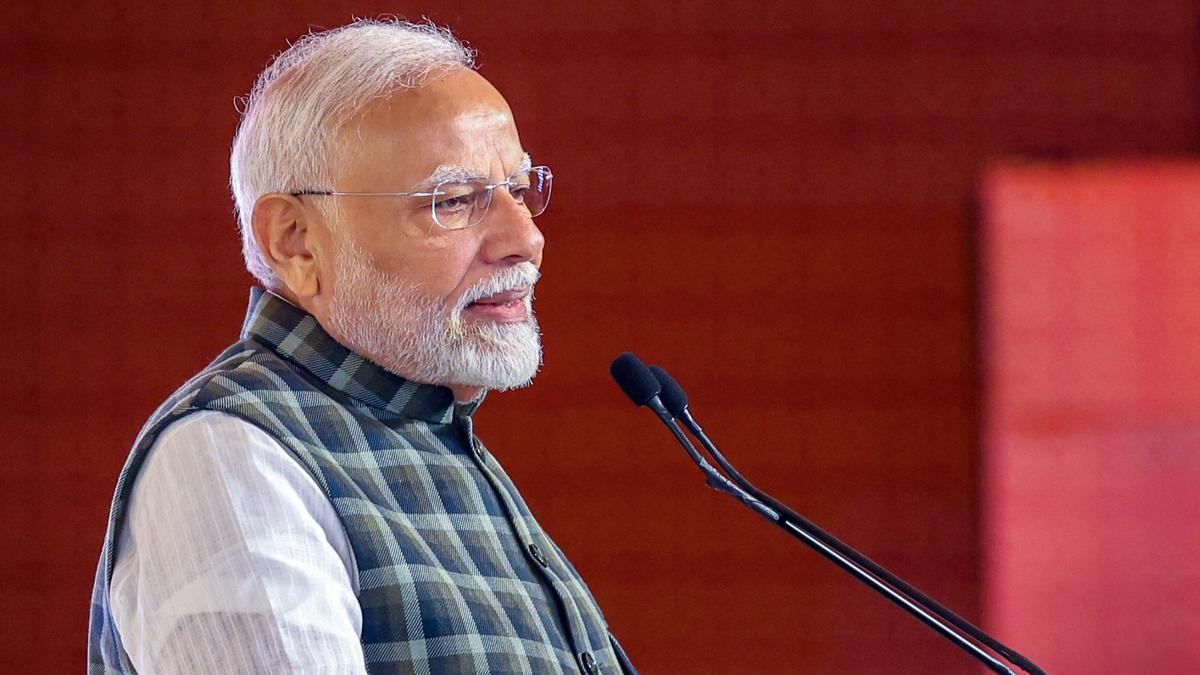 |
|
Prime Minister Narendra Modi's recent address at a summit in New Delhi painted a picture of significantly improved security within India, particularly in relation to the impact of counter-terrorism strategies and peace initiatives. His assertion that terrorists no longer feel safe in their homes stands as a bold claim, one that requires a nuanced examination of both the context and the potential counterarguments. The Prime Minister's statement directly contrasts the perceived security climate of previous administrations, where widespread terrorism instilled fear within the general populace. This contrast forms the central theme of his address, highlighting a perceived shift in the balance of power and effectiveness of security measures under his leadership. The reference to the 26/11 Mumbai terror attacks serves as a poignant reminder of the devastating impact of terrorism on national security and the lives of ordinary citizens. By juxtaposing the past with the present, Modi aimed to underscore the achievements of his government in creating a safer environment.
The Prime Minister's comments regarding Kashmir provide further insight into his assessment of improved security. He linked the improved security situation with the recent record voter turnout in Jammu and Kashmir elections, signifying a return to normalcy and a strengthened democratic process. This assertion, however, should be considered in the larger context of the ongoing political and security dynamics in the region. While increased voter participation can be interpreted as a sign of improved security and restored public confidence, other factors such as political pressures and socio-economic changes could also have influenced voter turnout. A deeper analysis is needed to ascertain the extent to which improved security directly correlates with increased election participation. The claim of seven decades of indecisiveness and violence preceding the current situation highlights the historical weight of the Kashmir issue and the significant strides, according to Modi, made towards peace and stability.
The Prime Minister’s mention of the Bodoland Mohotsav, a cultural event celebrating the successful implementation of the 2020 Bodo Peace Accord, provides another example of the government's stated success in bringing peace and stability to previously volatile regions. The participation of youth in this event underscores the symbolic significance of the accord's impact. The five-decade-long history of violence in the region prior to the accord serves as a stark contrast to the present-day celebration, signifying a substantial shift in the social and political landscape. However, a comprehensive assessment of the lasting impact of the Bodo Peace Accord requires a thorough examination of factors such as the degree of sustained peace, socio-economic development in the region, and ongoing reconciliation efforts. While the event offers a positive narrative, a critical evaluation of long-term stability and the challenges remaining is crucial to provide a more complete picture.
In conclusion, while Prime Minister Modi’s assertions about increased security and a shift in the balance of power against terrorism are significant, a comprehensive understanding requires a thorough investigation of the supporting evidence and potential counterarguments. While the examples presented – the changed security landscape, the improved electoral participation in Kashmir, and the success of the Bodo Peace Accord – contribute to the narrative of improved security, independent verification and analysis of these claims is necessary. A critical perspective acknowledges the complexities and nuances of these issues, avoiding simplistic interpretations that may overshadow lingering challenges and the need for continued efforts towards achieving lasting peace and security across all regions of India.
